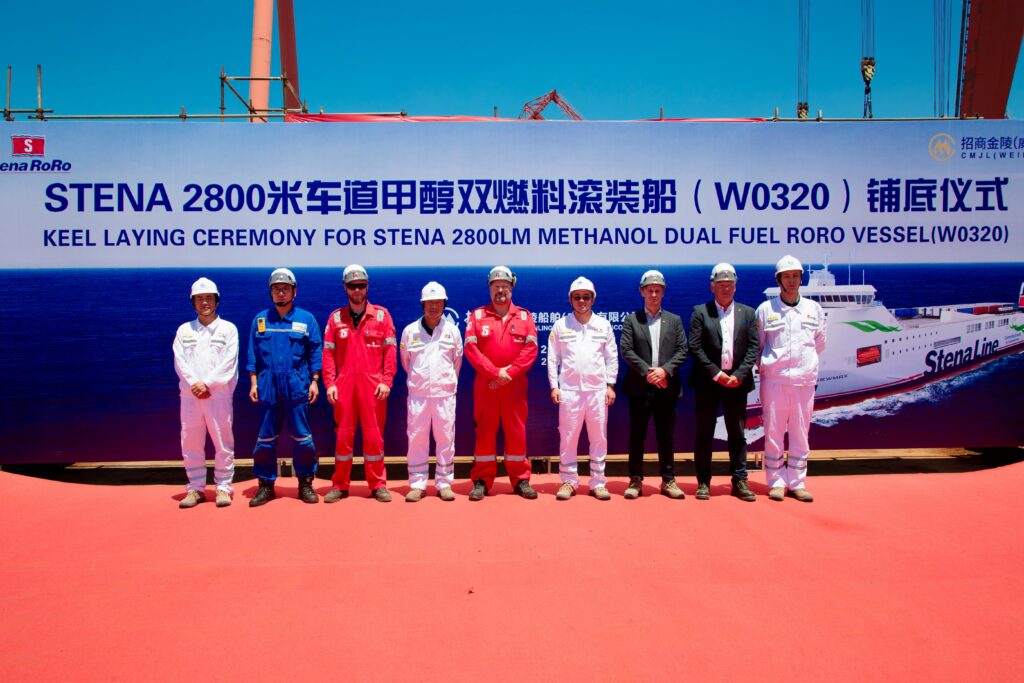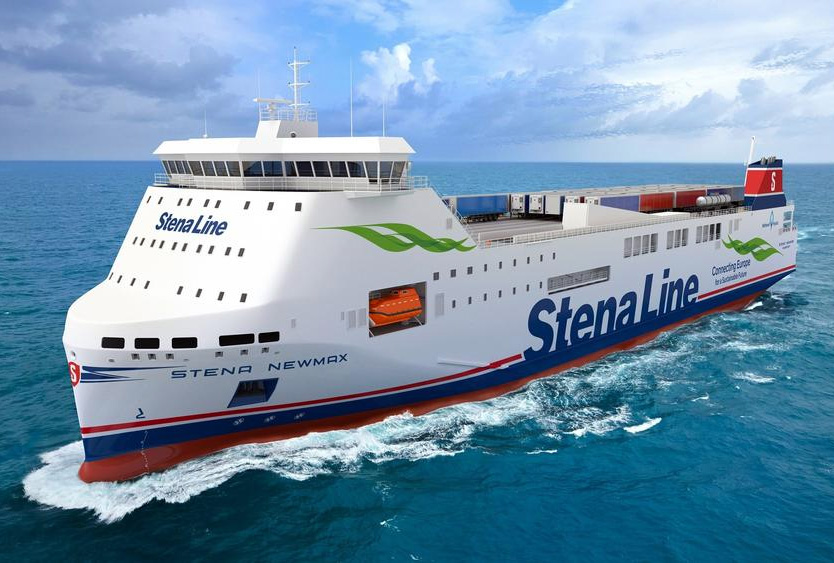Swedish ferry company, Stena Line has reached an important milestone in its fleet investment programme with the keel laying of the first ‘NewMax’ vessel which will be deployed on the Belfast-Heysham route. The ship has also been officially named Stena Futura.
On Friday 28 June, the keel laying ceremony of the first of the two new ‘NewMax’ hybrid vessels took place in China Merchants Jinling Shipyard in WeiHai, China. Stena Futura, the chosen name for the vessel, is one of two ‘NewMax’ hybrid vessels being built to run on methanol. The new vessels will significantly enhance freight capacity on the Belfast-Heysham route.
A priority during the construction of the vessels will be to provide built-in technologies that can take advantage of both battery propulsion and shore power, where available. The ships will be future-proofed with a progressive propulsion configuration that will ultimately allow the vessels to be decarbonised.
Stena Line is currently working with port partners, Peel Ports and Belfast Harbour to secure the smooth introduction of the vessel as well the provision of shore infrastructure needed to provide additional electrical capacity to enable the future goal of powering the new ships by shore power.
“Keel laying marks a significant milestone in the construction of our new hybrid ships for the Belfast – Heysham route and we are delighted to announce its name – Stena Futura. As demand for freight across the Irish Sea continues to grow, the increase in capacity will be universally welcomed by hauliers and exporters.” says Paul Grant, Trade Director Irish Sea, Stena Line.
“Stena Line is committed to taking responsibility and being part of the solution to climate change. Investing in new ships, prepared to run on alternative fuels as well as electricity, is an important part of our strategy of moving towards new sustainable fuels and setting new industry standards.”
The keel-laying of the second of the two NewMax vessels is planned for this autumn and the name of that vessel has yet to be revealed and its due to come into service in early 2026.



